Notes, Reviews, Speculations
EPOCH’s weblog features criticism, craft essays, and interviews by editors current and former. It is updated regularly during the academic year, and occasionally during the summer.

“Immersed in Another Consciousness”: Meghan O’Gieblyn
“Machines—at least the language models that we have today—are constantly deluding themselves. They have no access to the world. They hallucinate all the time. This is one reason why I can’t imagine getting anything out of the Great American LLM Novel, should it ever come about. Even if the story is fantastic and the language is beautiful, there would be nothing at stake—no person who’s trying to figure something out, or get down to the truth of the human experience, which is what I’m always looking for, as a reader. That’s an intrinsically human project, and I think that’s largely what we mean when we try to articulate the value of a work of literature.”

Interview: George Saunders
“How are things out there? What’s happening? We can’t know—the world is too vast—but we have imagination to help us. Literature trains the imagination. A dearth of literature (a culture that is not actively literary) leads to a flat, inadequate picture of reality.
“In our time, the literary imagination is being trammeled and transformed by capital—by big corporate interests, in entertainment, advertising, and politics—and what is often produced is, to use a technical phrase, bullshit. Bullshit with an agenda. It’s smooth, it looks and sounds and feels, sort of, like art, or like the products of an art-honoring culture, but there’s the stink of money all over it. Money and the banality that seeking after money (after clicks, Likes, the seeking of cultural capital) can produce. It is mediocre and full of trite, lazy values. And this pervasive force is coming for ‘real’ literature, because we writers are in that product up to our ears, as everyone is. It’s a form of propaganda, really, and it leads to people not being able to distinguish bullshit from truth.”

Review: Burying the Mountain by Shangyang Fang
Perhaps what is most impressive about the meditative and metaphysical tenor in Fang’s writing is that it remains firmly situated in the realm of poetry—adeptly avoiding the trappings of formless pseudo-philosophical musing or a lifeless over-intellectualization of subject matters. At the core of this collection is a poet who is deeply in love with language and the strangeness afforded by its imaginative force. Earnest to William Carlos Williams’ maxim of “no ideas but in things,” Fang transports and emplaces us into the “wounded openness of poetry,” where the world of ideas is viscerally alive and sinewed into lush forms. Thoughts swerve with the sensuousness of a “fish thrash[ing] like a lamb” or bloom from “absent space” like “springtime…azaleas tossing their enormous, roping genitals.” Fang shows us a mode of reasoning which begins as much in the body as it does in the mind—dissolving the reductive binaries of Cartesian dualism—and unifying the rich discordances of the being into a rounded, embodied, processual mode of thinking and perceiving.
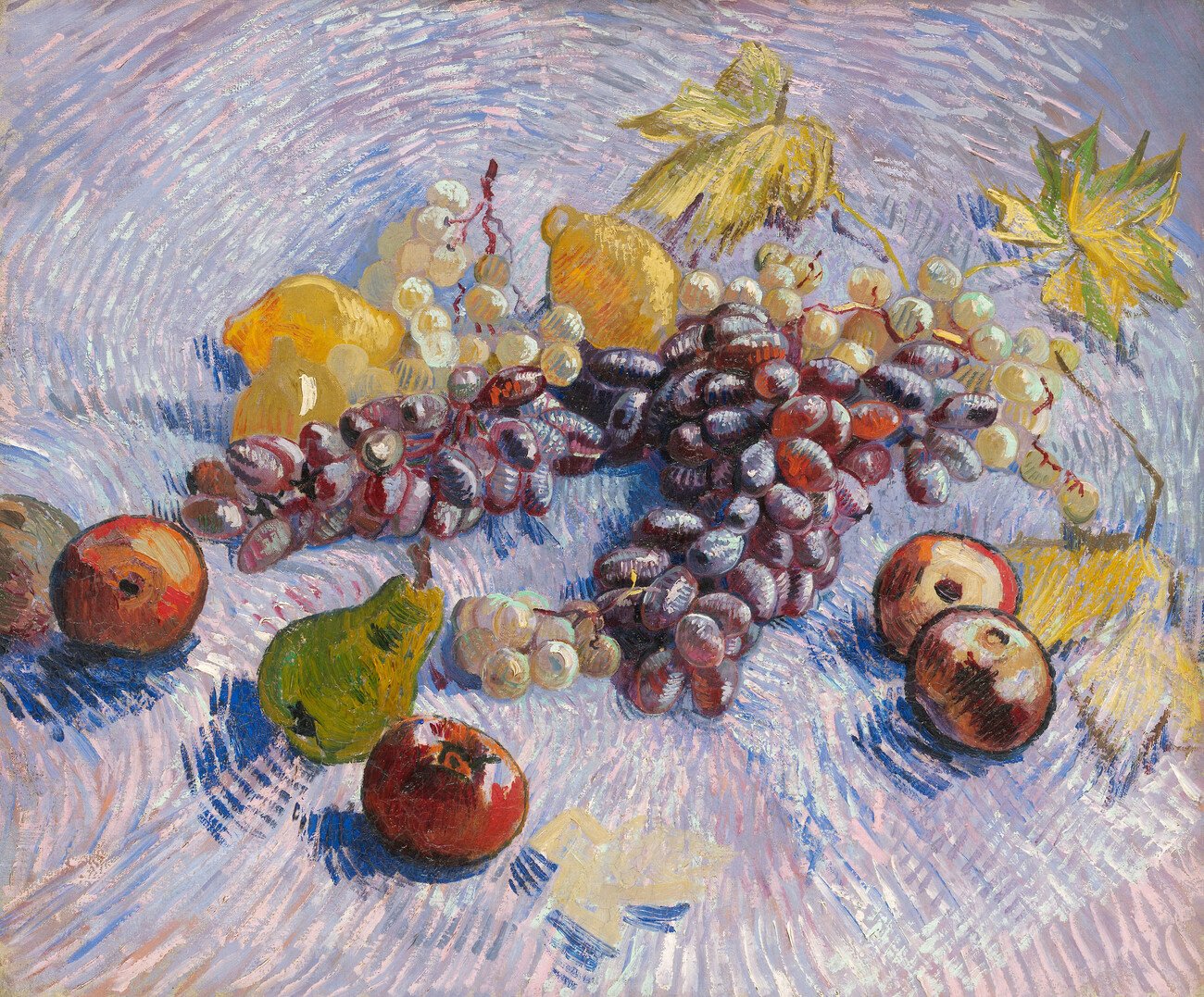
On Surrealist Translation
Who is entitled to translate who? A concrete answer has yet to be decided upon, but similarities of identity between the translator and the translated seem to make translations more defensible, even palatable. The Polish writer Adam Ważyk claims that “it is not difficult to transfer a Surreal imagination from one European language to another,” insinuating that perhaps the only things necessary for translating Surrealist poetry are a Surrealist mindset and European passport.

A Case for Self-Plagiarism
After spending so many months writing and rewriting, I felt like I had exhausted every original idea I would ever have. The pressure to continually reinvent myself as a writer was paralysing. Revisiting that old draft and finding that one image was like reaching into a coat pocket on the first day of winter and pulling out a $20 bill. I wanted to replicate its freshness and excitement. It was adapted from a real scene: my own grandmother in the kitchen during the Lunar New Year celebration, hovering above several steaming pots. What else is in the frame?
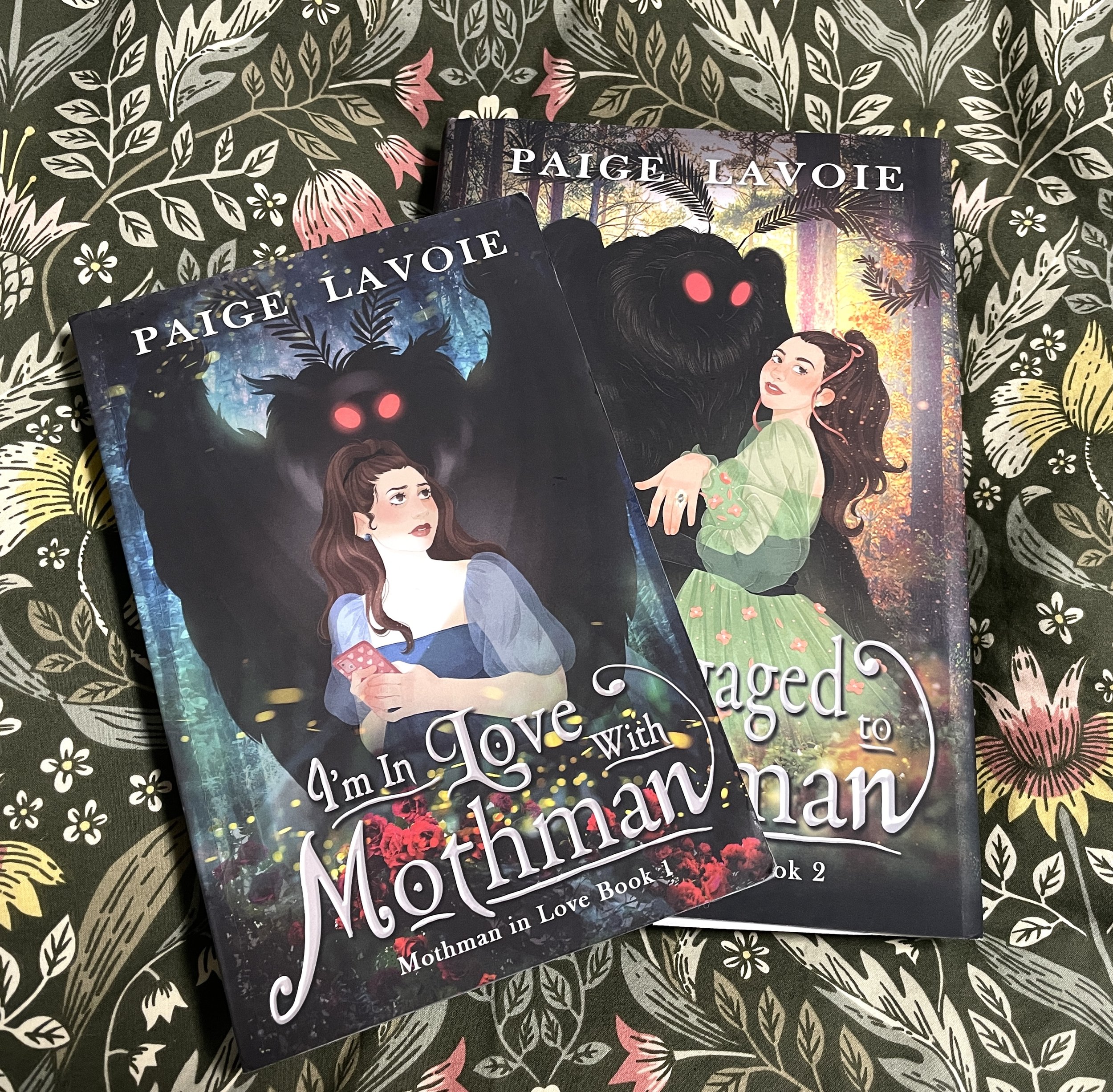
Interview: Paranormal Romance Author Paige Lavoie
“I think desire is a hard thing to talk about and incredibly vulnerable. Having really open conversation, planning, safe words, is not only important and sure can feel awkward to talk about, but also led to a scene that I think felt very sexy while maintaining boundaries—which I think is a great thing to see in fiction.”
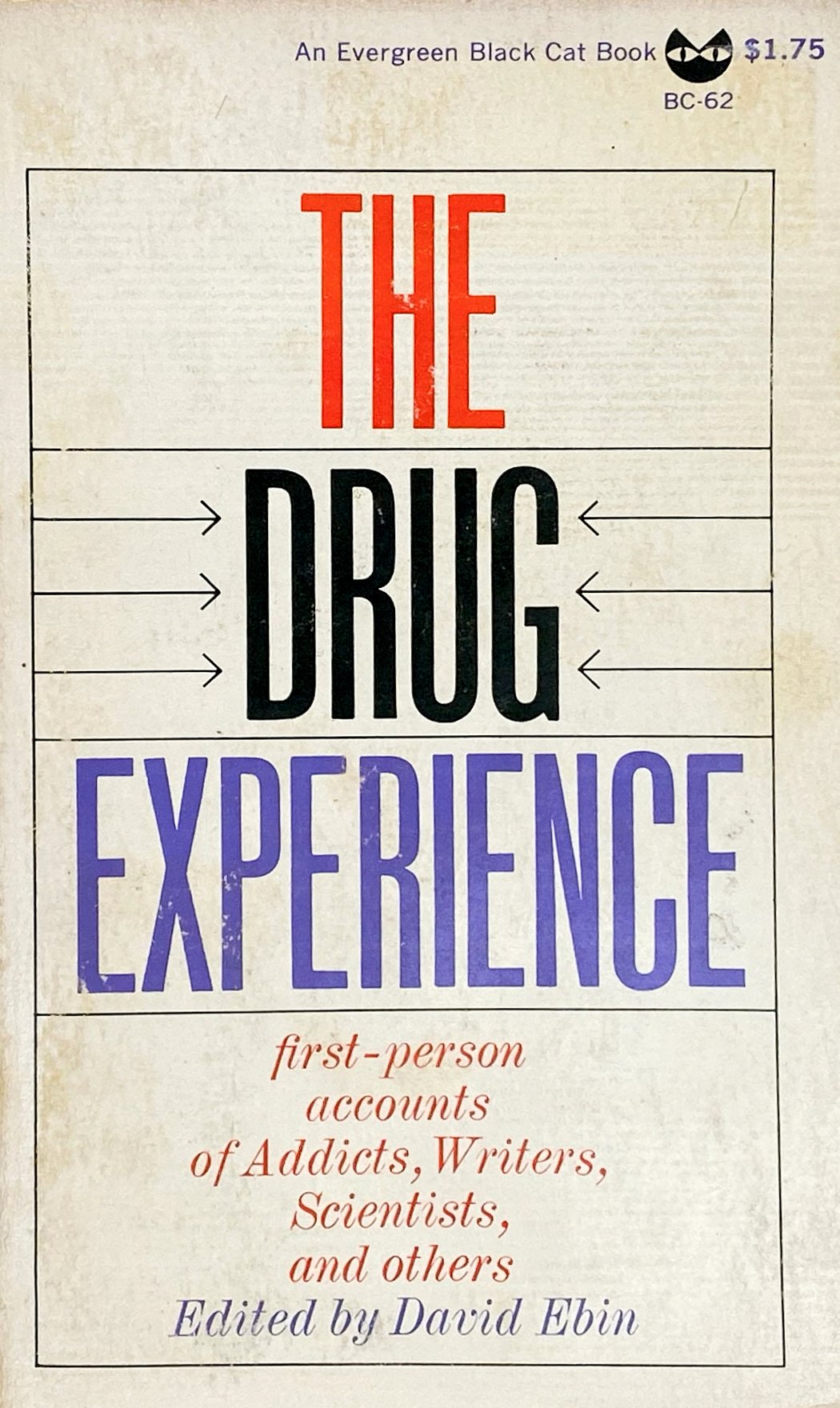
Travelers into Drug-Land: a Review of The Drug Experience (1961)
You don’t really want a brand-new copy of The Drug Experience, anyway. That would spoil the fun. Instead, it’s best to find a copy at the library, at a second-hand bookstore, at a thrift store, or—ideally—discarded in a dumpster somewhere. You want the edition that’s dog-eared, dilapidated, book jacket shredded around the edges, yellowed pages perfumed with a reek reminiscent of expired salad dressing, the print so small and cramped that you have to squint to read it.

We Are in the Business of Feelings
How many of us have turned to writing to make sense of chaos? Still, though writing is personal, there is pressure to dismiss the personal in literary work, lest it be read as sentimental. How can we reinsert emotion back into our writing practice, without shame? How can we practice vulnerability as we brave the page? How might leaning more into emotional honesty and sincerity in our daily lives affect our writing?

Review: The Trees Witness Everything by Victoria Chang
The Trees Witness Everything concerns itself with questions and answers, mothers, inherited language, rain, light, time, dreams, violence, publication, love, hope, desire, grief, fire. Within all these elements, what does Chang do with form? Imagine that in her hands, form is a capped bottle on the windowsill and the poem is the days-old water inside it, filling with pressure and heat. This is the heat of living.

The Writer’s Guide to Ludonarrative Dissonance
While there is no ludology to a short story, we bear a similar narrative burden: how do we make it clear to a reader what it is we mean to say? There is no “player choice” to contend with, but we do have disparate elements to wrangle together under the cohesive umbrella of “story:” syntax, structure, whatever other craft buzzwords you can think of. If our story is an ironic confrontation with high society at the turn of the 19th century, for example, how might we craft a first sentence to make all of that clear to our reader, to set their expectations, to instruct them on how to read the rest of the book?

Interview: Derek Chan
The poem to me is perpetually fraught and shot through with seams of unfinished bewilderment. This is perhaps why, as multilingual poet, I find the poem as such a fertile and natural space to traverse the incommensurable distances between languages and cultures. I have an entrustment, that in the poem, the untranslatable, liminal collisions between languages are not failures, but unaccountable—and therefore inexhaustibly mysterious—enunciations in their own right, serving as generative reconfigurations of legibility, intelligibility, and sense-making.

Interview: Alexandra Chang
But the mysterious part for me, and I think other writers probably speak to this better than I do, is that feeling of reentering the story and paying very close attention to my own reactions, instead of pushing aside the feeling that something's off. In life, there’s this inclination think, “Well, if I can’t immediately pinpoint what’s causing this off feeling, then just leave it as it is.” But as a writer, it’s hard to get away with that. You have to listen to that gut feeling of something being off and actually try to figure out its source.

Is Love Tired? (a Q&A without any A’s)
Wasn’t it in Jean Cocteau’s La Belle et la Bête (1946) that the beast, upon turning human, says to his princess, “It’s as though you missed my ugliness”? Oh god, doesn’t that just hit the nail on the head? Isn’t desire all about ugliness? Must devotion and disgust always be antithetical to one another? Can they not coexist, as lust and rage do? Aren’t we all just fantastically, wonderfully, irresistibly hideous in the eyes of those who love us?
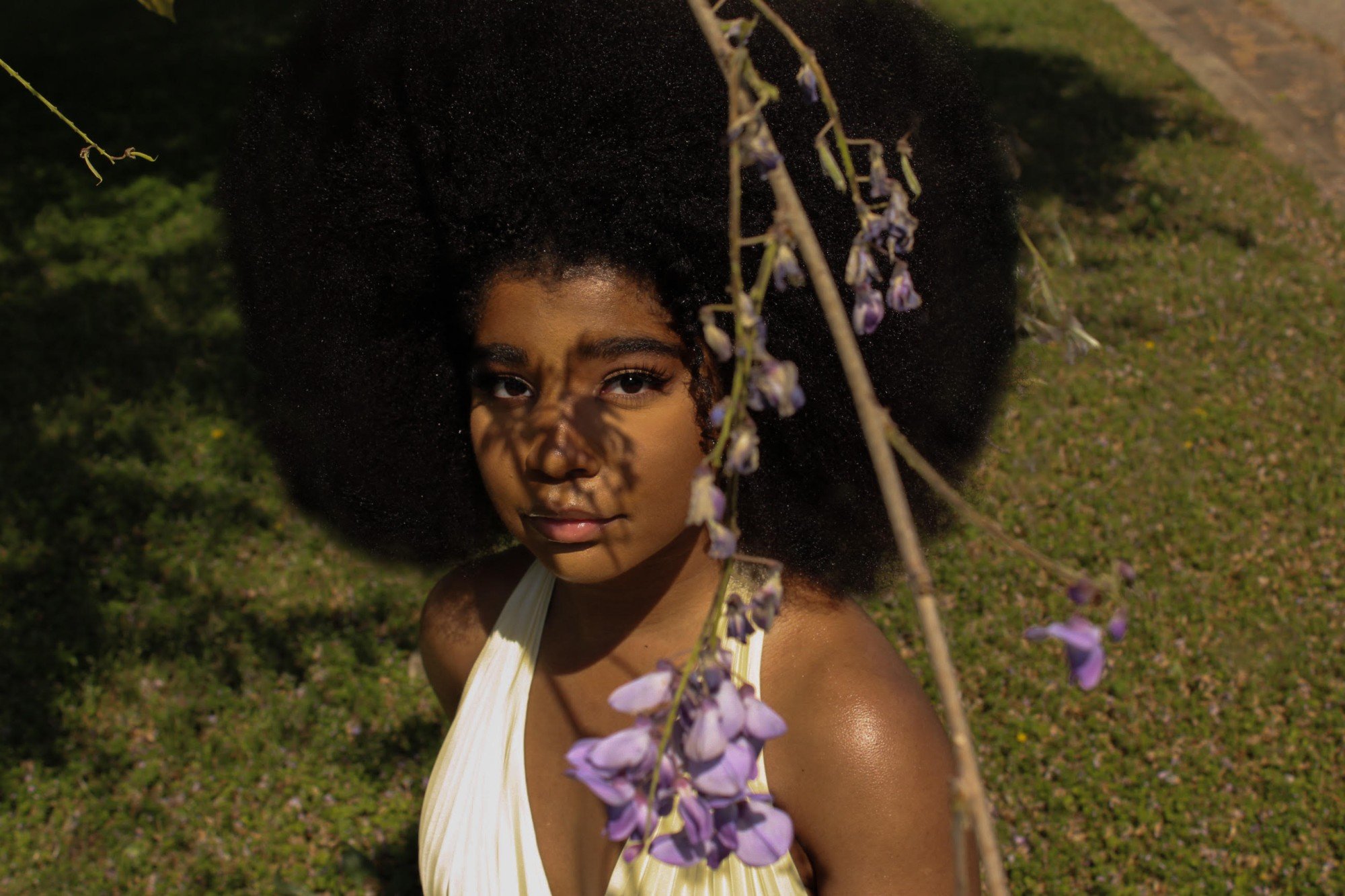
Interview: Bryn Evans
I was very observant as a child. I really enjoyed looking. That's something that still remains true today, observation and witnessing, and learning through witnessing. I was pretty quiet as a child, which is to say. And I think at times, you know, my parents and my relatives and my teachers were a bit concerned because I was so quiet, but I think I was just like a sponge. I was a sponge just absorbing everything around me. So yeah, I would say joyful observance. I enjoy the soft things of life, I always have.
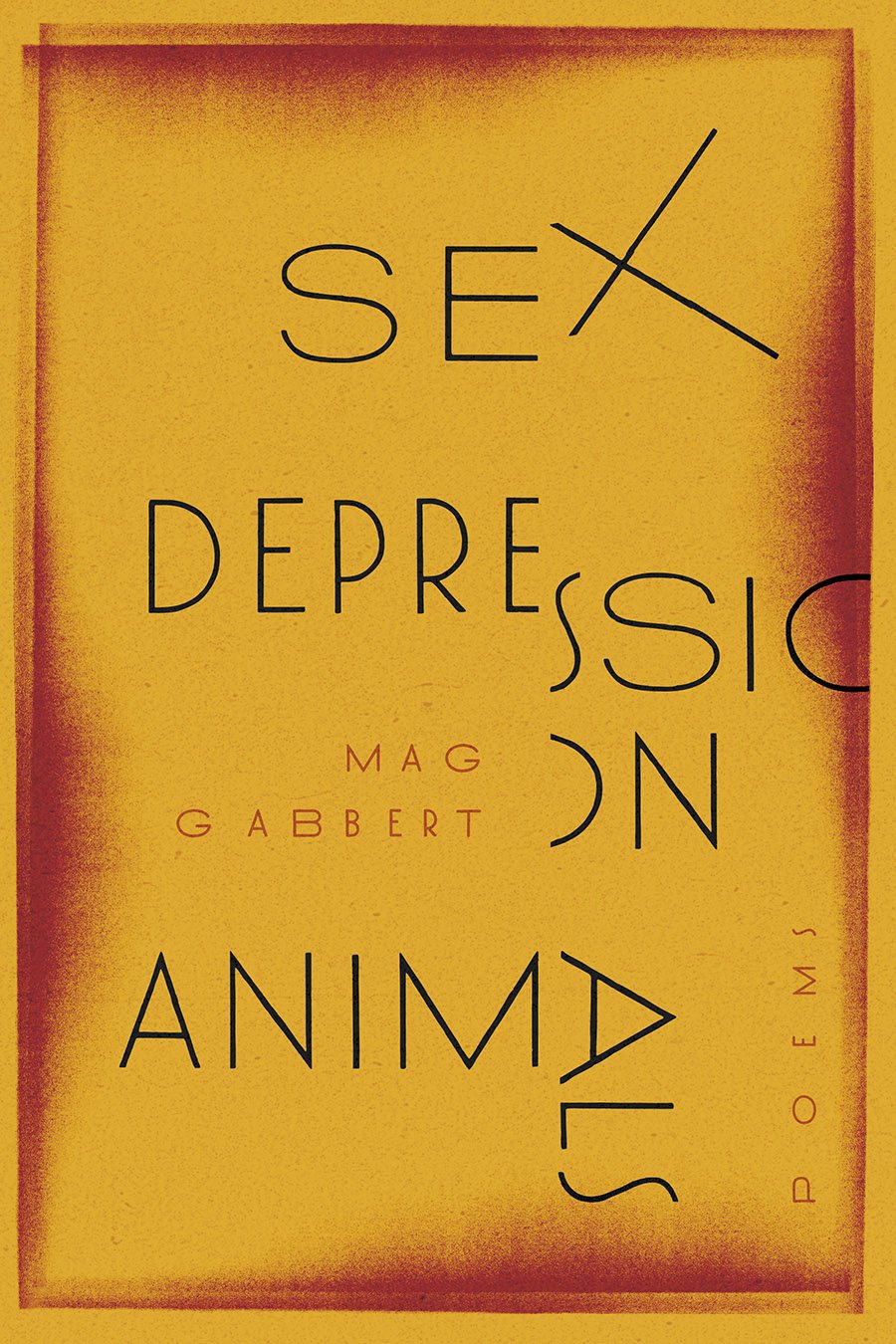
Review: Sex Depression Animals by Mag Gabbert
I started reading Sex Depression Animals the same night I took my first ever dose of Lexapro. It occurred to me as I picked up the book that I’d intended to read this collection months ago (according to Goodreads, I marked it as ‘want to read’ on April 17th, a little over a month after it was published). Why had I waited so long? I could point to any number of easy excuses—rent, work, school—but I knew these were cop-outs. I put off reading for the same reason I put off consuming so many other things I know I will like but find myself avoiding: the stakes are too high.

“Sin, Men!” A Look at Holorimes
If you’ve mastered the sonnet and want to step up your poetic game, it might be time to try a holorime. While the holorime dates back centuries, it was popularized as a poetic form by Jean Goudezki in her 1892 piece, ‘Invitation’. The structure is simple: a couplet in which each line is composed of homophonic words, so that they sound exactly the same when read aloud but have entirely different meanings.
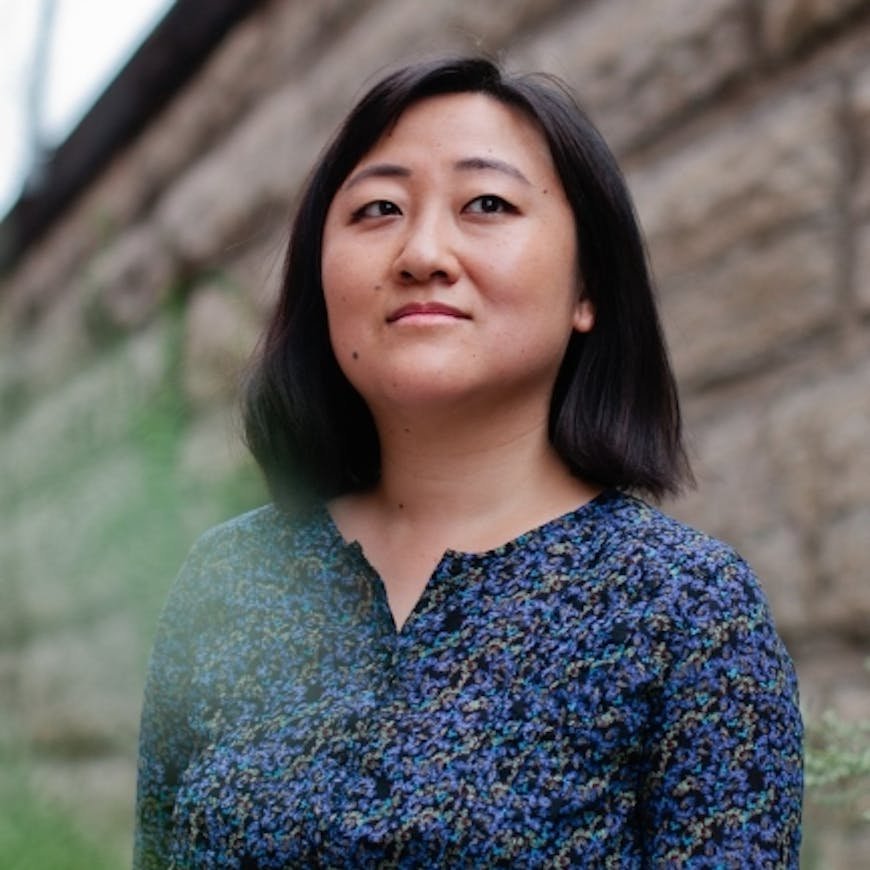
Interview: Ling Ma
“I was thinking about him in terms of masculinity. I was working at Playboy at the time, and it's a men's magazine, of course, so for every issue, we would do these fashion spreads on icons like Steve McQueen and Cary Grant, or whatever. Like, buy this pair of Persol sunglasses to emulate Steve McQueen! These icons of Western masculinity basically. And so I was thinking, ‘Well what if you were to push that extreme even further? What does hysterical masculinity look like like?’ And I just started thinking about Yetis and Sasquatch.”
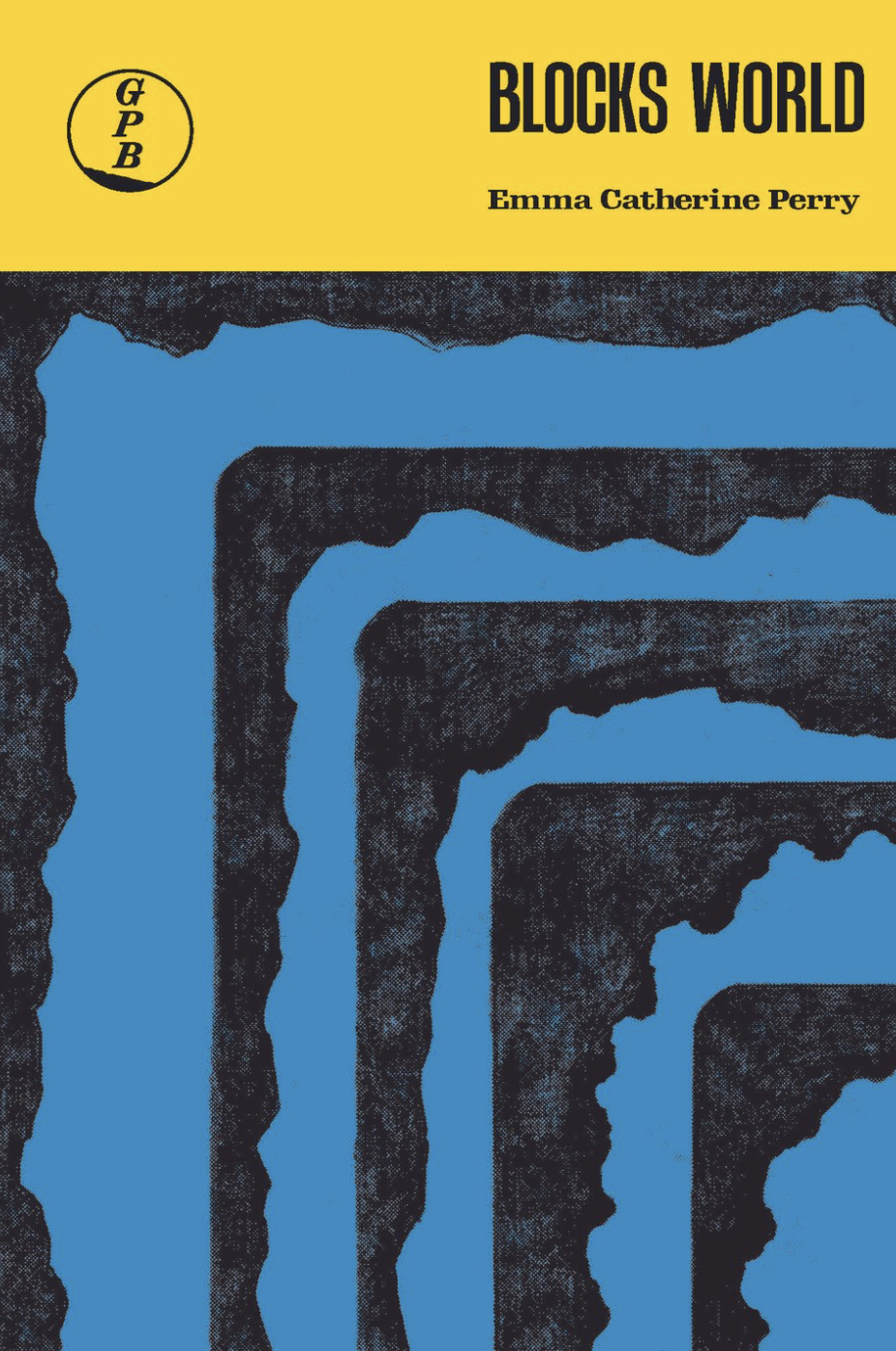
Review: Blocks World by Emma Catherine Perry
In the background of Perry’s book lurk questions about our nature. Are our brains analogous to advanced AI, neural networks filled with content from the world? Should we look to our own creations to examine ourselves? Or return to the simpler species like the lobster for answers? Perry examines these ideas in relation to the speaker’s feelings but receives complex responses (“I will always swim out to save you / I will always push you away”). Ultimately, Blocks World sees a human being as a “bloodful machine,” where both its existence and its meaning are inaccessible and strange.
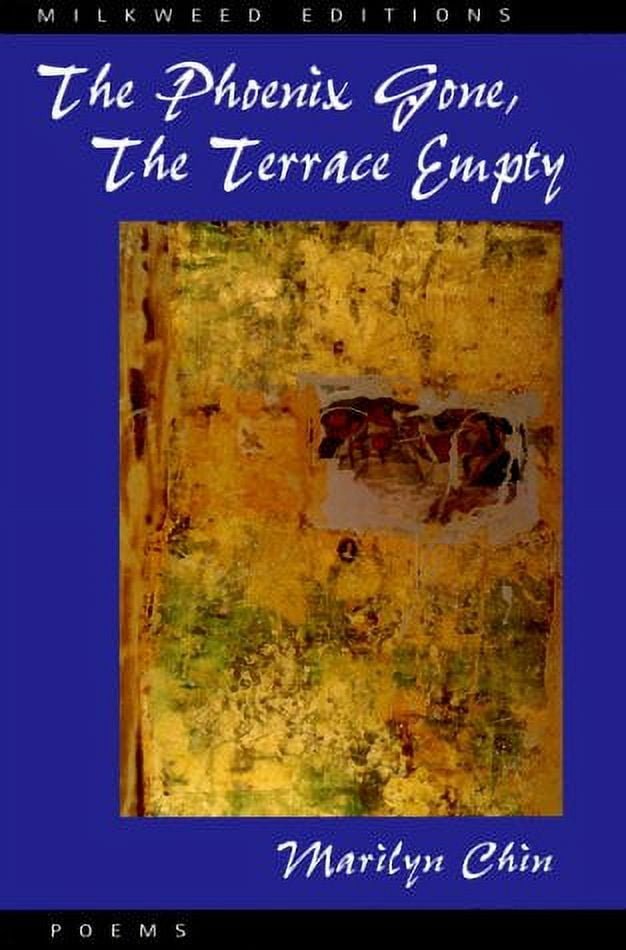
A Place We Have Both Left and Never Been
Chin blurs the line between speaker and poet, and her epigraph tells us that this poem is itself a hybrid form. Even within the diction, there are quick shifts from the firm, formal, and grammatical (“the resoluteness / of that first person singular”) to the colloquial and the suggestion of whispered scandal (“obsessed with a bombshell blond”). Her name, a source of pride and identity, is flung between Chinese and English, between familial history and American popular culture through sound and not meaning. The name becomes a site of a split self. As in her poetry, many histories and influences are attached.
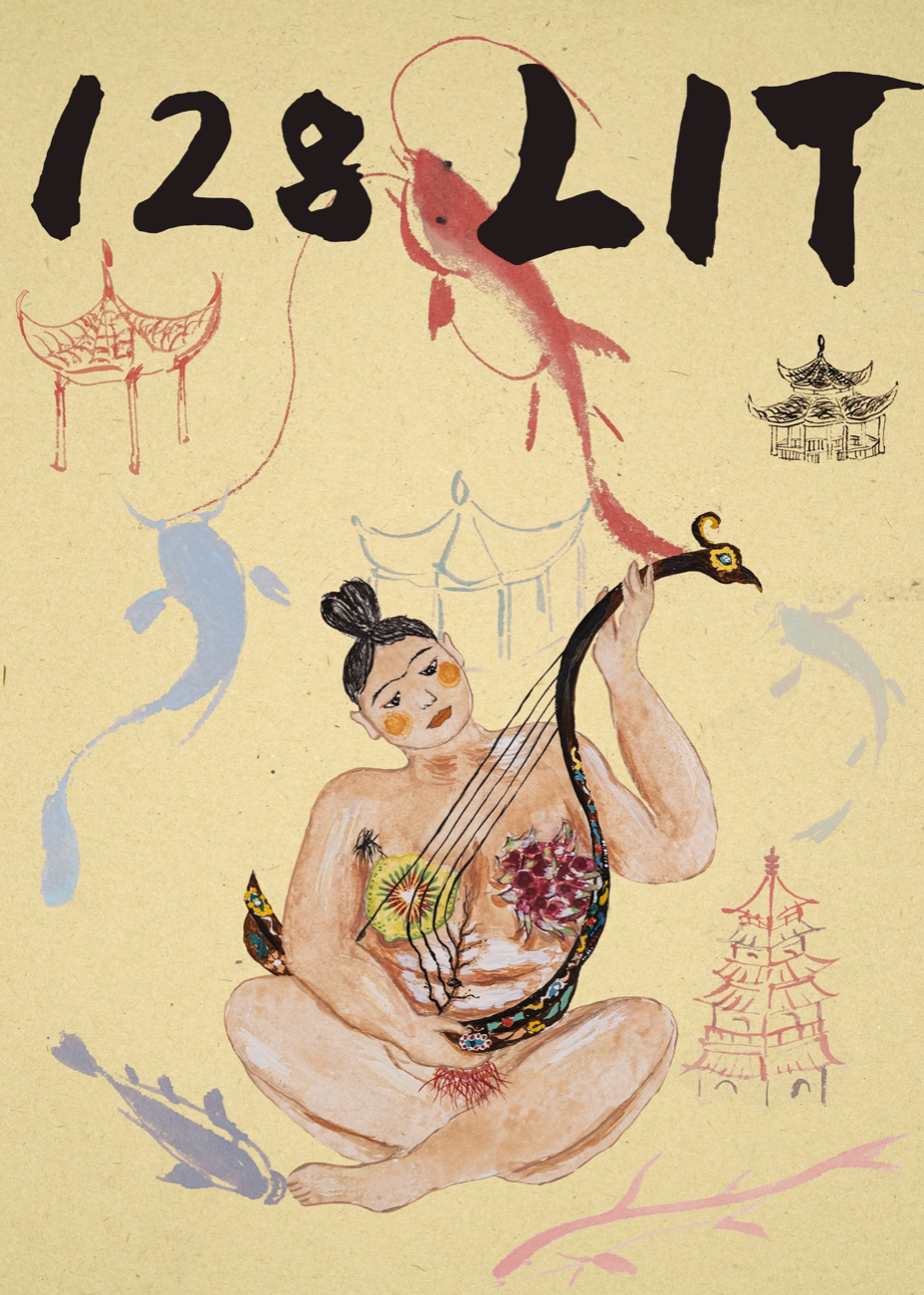
Interview: Andrew Felsher
In October of 2022, Andrew Felsher and Yehui Zhao launched the first issue of 128 LIT, a print and online literary magazine focused on showcasing international voices and works in translation. The magazine has published excellent writers like Kim Hyesoon and Najlaa Eltom. In 2023, 128 LIT ran a chapbook contest judged by Mona Kareem, Saddiq Dzukogi, and Jacques Fux. The winner—My Women by Yuliia Iliukha, translated from Ukrainian by Hanna Leliv—will be published in 2024. A sample of Yuliia’s writing is available on 128 LIT’s website. Over email throughout November 2023, Andrew and I discussed 128 LIT’s mission to make the world larger with stories, and to collapse the distance between arbitrary borders.
